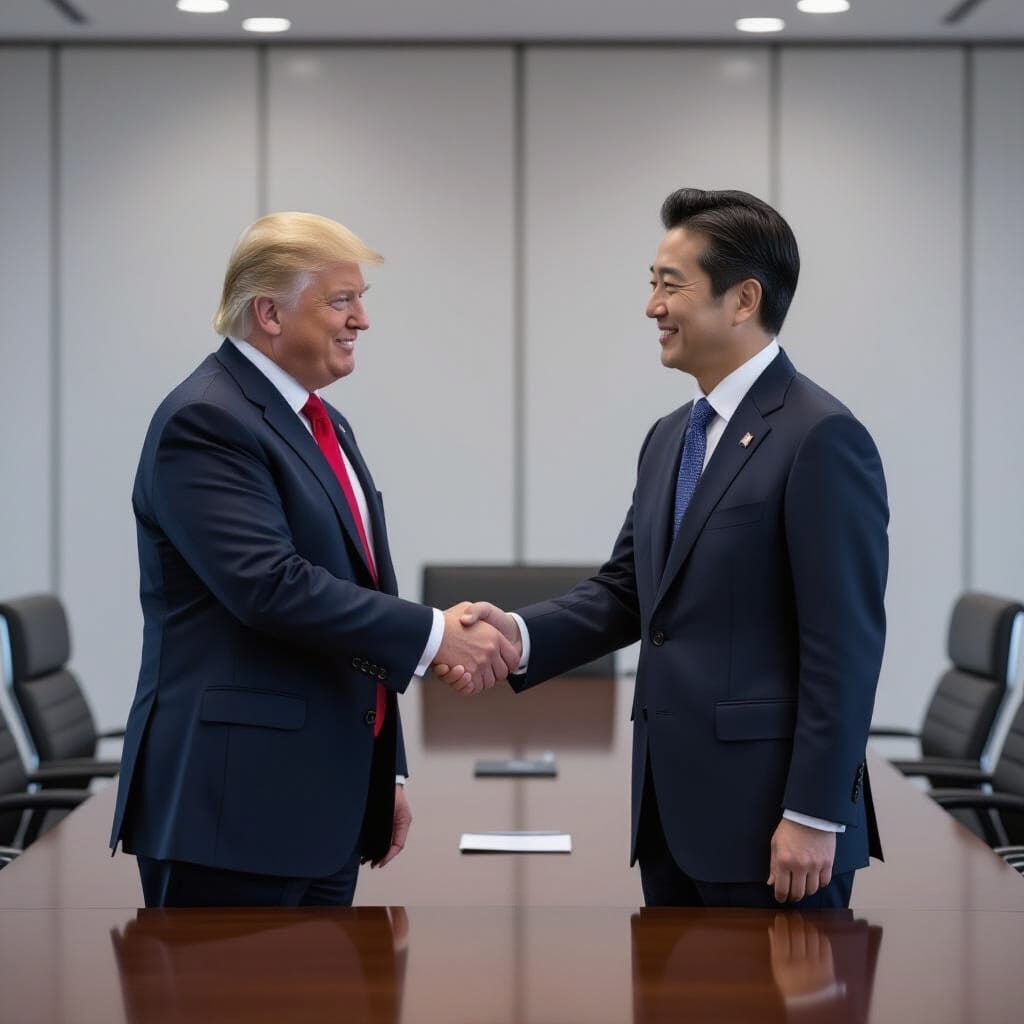Reciprocal Tariffs with Japan Cause Stock Market Indices to Flip
Tariffs could shake up the stock market soon, but for now the U.S.-Japan agreement has soothed tensions.

Quick overview
- The Nasdaq fell by 0.39% while the Dow gained 0.40% following a new trade deal between the U.S. and Japan.
- President Trump announced a 'massive' deal where Japan will invest $550 billion in the U.S. and face a 15% reciprocal tariff.
- Despite the tariff threats, the stock market remains resilient, with the Nasdaq and S&P 500 achieving record highs.
- The overall market has recovered from earlier tariff concerns, with companies like Microsoft and Nvidia setting new price records.
Nasdaq had been leading the stock market indices, but with Trump reaching a trade deal with Japan for a 15% reciprocal tariff, the Nasdaq fell while the Dow climbed on Tuesday.

The Dow Jones gained 0.40% on Tuesday ahead of the close of trading, and the Nasdaq Composite lost its upward momentum with a drop of 0.39%. This is a reversal of roles for the two indices, but it comes on the heels of new tariffs aimed at Japan. The S&P 500 continued its near record high run with an increase of 0.06%.
Japan and the United States reached a trade deal that President Donald Trump called “massive” and “perhaps the biggest DEAL ever made.” The overall thrust of the deal is that Japan will invest $550 billion in the United States, and the U.S. will charge a 15% reciprocal tariff on goods imported from Japan.
The Nasdaq Composite was trending higher in early morning trading on Wednesday, however, gaining 0.15%. The index is still climbing higher overall and is setting new record highs, demonstrating a strong and resilient economy. It will definitely help the Nasdaq’s momentum and overall numbers that one of the biggest trade deals out of the many that were up in the air recently has been resolved.
Tariff Problems Persist
The stock market seems mostly unbothered by the threat of new tariffs, even as Donald Trump’s August 1st deadline looms. That is the date the President set for a response from countries that he issued tariff terms to earlier in July. If they can reach a deal with the United States before that time, like Japan has done, they will be able to avoid the extravagant tariffs he is proposing. These tariffs range from 25-40% and are targeted at the countries of Bangladesh, Serbia, Myanmar, Korea, Thailand, South Africa, and others.
The stock market has been able to achieve record highs lately, specifically on the Nasdaq Composite and the S&P 500. Likewise, Microsoft (MSFT) and Nvidia (NVDA) have continued to push higher and set new records on the stock market for their own prices.
Earlier in the year, the threat of tariffs sunk the stock market, pushing it well below the sky-high numbers we saw in late 2024 and early 2025. We have seen the vast majority of stocks recover since then and little negative effect from these new tariff promises. If there is to be an impact from these new tariffs, it will most likely be due to countries not responding to Trump’s letters or failing to negotiate to his satisfaction.
- Check out our free forex signals
- Follow the top economic events on FX Leaders economic calendar
- Trade better, discover more Forex Trading Strategies
- Open a FREE Trading Account


